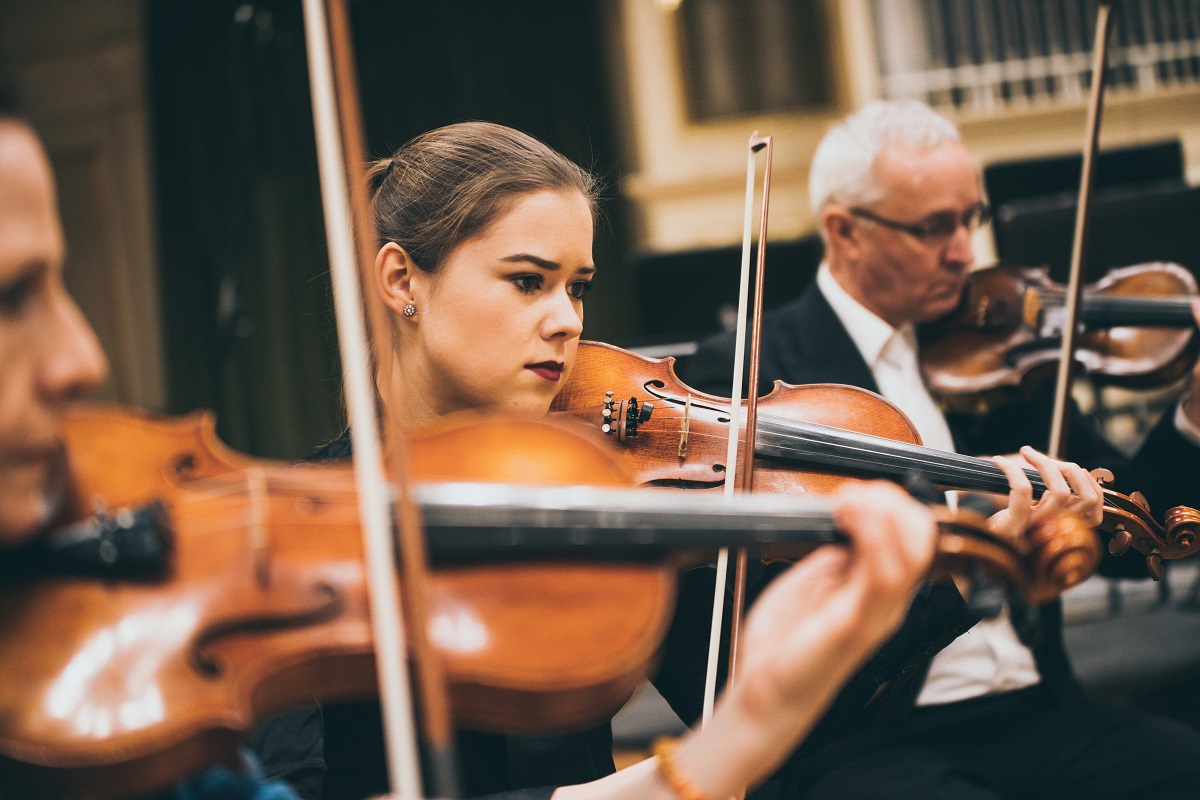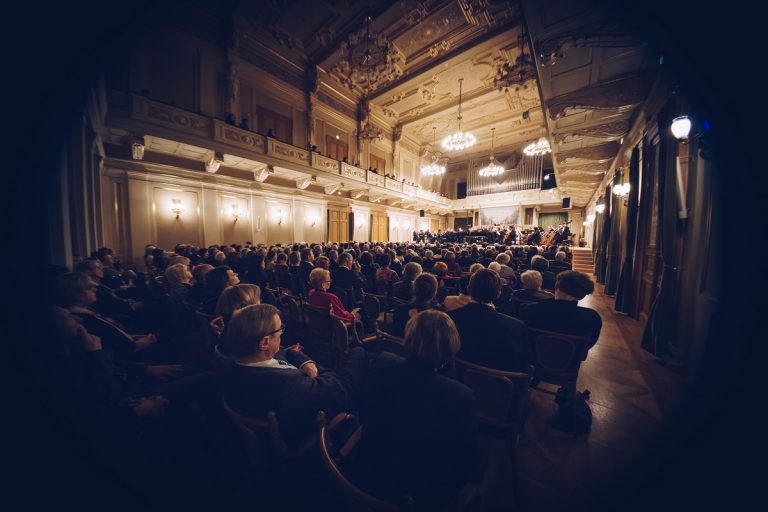The Moravian Autumn Festival started this week and will run until October 17th. This year the three main themes are Jan Novák, minimalism and Armenia. Most of the festival is dedicated to Brno composer Jan Novák on the occasion of the centenary of his birth, different minimalist trends will be showcased, and Armenian artists will celebrate 30 years of Armenian independence. Credit: archive Filharmonie Brno.
Brno, Oct 4 (BD) – The Moravian Autumn festival ranks among the most important cultural events in the Czech Republic. Most of this year’s festival will be dedicated to the Czech composer Jan Novák to celebrate the centenary of his birth, but there will also be many different off-program events: orchestral and chamber concerts, theatrical performances, screening recitals and a children’s program.
This edition began with the Philharmonic Dances, a work composed by Jan Novák in 1956 for the nascent Filharmonie Brno. At the time Novák – despite his known strongly anti-communist ideas – was presented at the Warsaw Autumn Festival 1956 as a representative of Czech works.
After Novák, “Night Music” by the most sought-after contemporary Austrian composer Kurt Schwertsik was presented. The title of the work is a tribute to Mahler and Mozart. The opera in five movements was commissioned by the BBC, and was followed by a performance from Angélique Kidjo.

Three-time Grammy winner Kidjo performed Phillip Glass’s Symphony No. 12 “Lodger” on stage with Filharmonie Brno. The symphony was composed for her by Glass directly using the lyrics of David Bowie. This performance closed the first day of the festival.
“If neoclassicism was one of the main directions of the first half of the twentieth century, which in the following decades was attenuated, among other things, in the work of Jan Novák, then minimalism can be described as a direction that has taken the initiative in the second half of the same century. The festival will offer the opportunity to compare current trends in American, Russian and Czech minimalism”, said Vítězslav Mikeš, the programme director of the festival.
The second day of the festival was mostly dedicated to the festival’s second major theme of minimalism. Russian pianist Vladimir Martynov presented a minimalist oratorio, “Children of the Otter”, allowing the public to experience a concept of minimalism different to the American style of Philip Glass.
The famous Huun-Huur-Tu group performed under the artistic direction of the legendary Russian violinist Tatiana Grindenko. The four-member group are prominent representatives of Tuvinian music: a particular type of throat singing of the original inhabitants of the Siberian taiga, in which a singer can sing two to three tones at the same time. Their performance on Saturday was characterized by the use of traditional instruments.

The “Jan Novák 100” concert is among the most anticipated events. A selection of Novák’s compositions for singers, soloists and orchestra will start from Wednesday, and the next day young Brno pianist Jakub Sládek will play his “Elegantiae tripudium”.
The Novák line will end on October 15th with the world premiere of a theatrical version of “Carriage in Vienna”, created in collaboration with the Brno National Theater.
The third dramaturgical theme is Armenia. The Naghash Ensemble will participate in the festival and celebrate 30 years of Armenian independence. The Armenian Philharmonic under the direction of Eduard Topčjan will close the Moravian Autumn Festival on October 17th.
More info on the program can be found here.
Brno Daily provides media support to Moravsky Podzim







